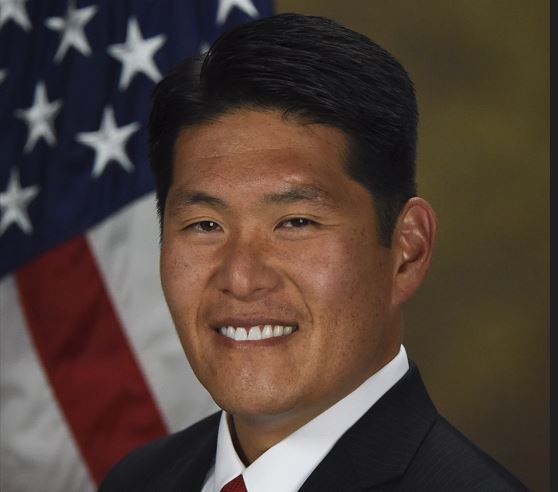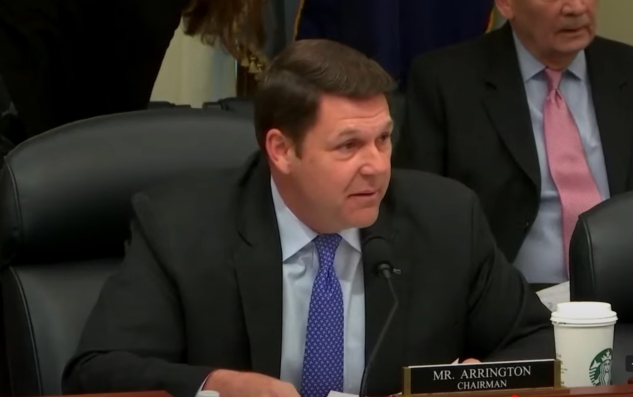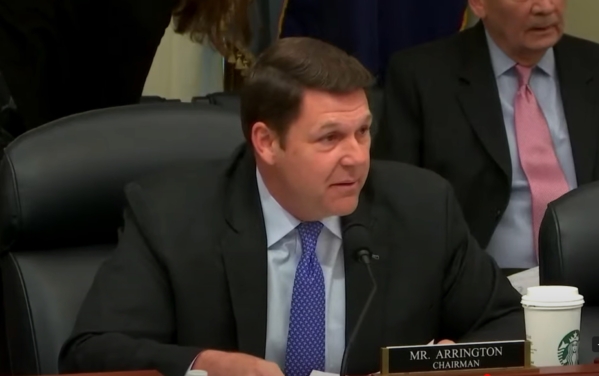Special Counsel in Biden Classified Documents Case Plays Amateur Gerontologist

By declining to charge President Biden with mishandling classified documents, but gratuitously impugning the president’s cognitive abilities, special counsel Robert Hur overstepped his bounds and fed into a blatantly ageist political narrative. Hur pulled a “James Comey” yesterday in announcing that the president would not be charged with a crime but criticizing Biden, anyway, just as Comey did with Hillary Clinton in 2016. (And we know how that turned out.) But, unlike Comey, Hur felt the need to disparage the President’s age and his memory, referring to Biden as “a well-meaning, elderly man.”
President Biden rightly defended himself during a press conference Thursday night. “I’m well-meaning, and I’m an elderly man — and I know what the hell I’m doing,” he declared from the Diplomatic Reception Room at the White House, as the Washington Post reported.
Former U.S. Attorney General Eric Holder posted on X (formerly Twitter):
“Special Counsel Hur’s report… contains way too many gratuitous remarks and is flatly inconsistent with longstanding Department of Justice (DOJ) traditions. Had this report been subject to normal DOJ review, these remarks undoubtedly would have been excised.” – Eric Holder
Columnist Robert Kuttner assailed Hur in today’s American Prospect, accusing him of “going out of his way to offer politically damaging and snarky assertions, and quotable one-liners.”
It’s interesting that Hur (a former Trump appointee) felt the need to play amateur gerontologist, which is not traditionally the job of a federal investigator. A lot of people are assuming that ‘gerontologist’ role these days without any qualifications whatsoever — from social media users to rival political figures — especially when it comes to President Biden. The worst offender has been Nikki Haley, who shamelessly said in a tv ad: “I’ll just say it: Biden’s too old.” She added for good measure, “And Congress is the most exclusive nursing home in America.”



Special prosecutor and armchair gerontologist Robert Hur
“You have to realize that most people that are out there commenting on this haven’t really looked at (Biden’s) medical records,” demographer S. Jay Olshanksy told us on our podcast in January. “My colleagues and I, including board certified geriatricians, have looked at the medical records in detail that are publicly available. We have come to the conclusion that there are no significant issues with President Biden’s cognitive abilities.”
Several national figures rushed to Biden’s defense on social media after Hur’s report was released. MSNBC host and former Republican Joe Scarborough posted:
“Hur, a lifelong Republican and creature of Washington, didn’t have a case against Biden, but knew how his swipes could hurt Biden politically.” – Joe Scarborough
Former United States Attorney for the Northern District of Alabama, Joyce Vance, commented on X:
“Robert Hur was no friend to Joe Biden. He conceded there wasn’t evidence that would prove (the president) committed a crime. That’s all. It’s over right there. It’s not like a friendly prosecutor gave Biden a pass.” – Joyce Vance
Meanwhile, President Trump largely seems to get a pass on his mental acuity by many in the mainstream media — and in the public at large— despite recent speeches replete with delusions, fantasies, paranoia, and outright falsehoods.
Olshansky says that commentators who question Biden’s mental agility are engaging in “classic ageism — where people draw false conclusions about older individuals based on the number of trips around the sun.”
As we wrote in this space last year, ageism is one of the only socially acceptable -isms these days — and runs rampant in our culture. “Ageism is everywhere – in the workplace, in media, in Hollywood, in schools and in health care, and it is something that most everyone will experience at some point in their lives,” writes Michele Dinman of the Harvey A. Friedman Center for Aging at Washington University in St. Louis.
Ageism is not a benign phenomenon. According to Dinman, older adults experience discrimination in employment, housing, health care, and in their daily lives. In a 2019 survey, 82% of older adults said that they “regularly experienced at least one form of everyday ageism.”
Olshanksy argues that President Biden should be judged by his achievements in office and his policy decisions, not by an ageist standard.
“I would think that the vast majority of the population would be incapable of holding the schedule that President Biden holds on a daily basis and under a spotlight added to that. So I would challenge anyone who makes this claim that there’s any sort of cognitive issue associated with President Biden to follow his schedule for a day and see how long they last. I don’t think they would last a single day.” – S. Jay Olshansky, Demographer, University of Illinois at Chicago
Ageism not only has no legitimate place in our political discourse, it has no place in our society at large. The last thing we need at a cultural moment like this is prosecutors playing armchair experts on the mental health of the president — or any other citizen of the United States of America.
84 Years Ago Today the First Social Security Beneficiary Got Her Check



Ida Mae Fuller in 1940
The following article is reprinted from the Social Security Administration (SSA) website www.ssa.gov
The First Social Security Beneficiary
Ida May Fuller was the first beneficiary of recurring monthly Social Security payments. Miss Fuller (known as Aunt Ida to her friends and family) was born on September 6, 1874 on a farm outside of Ludlow, Vermont. She attended school in Rutland, Vermont where one of her classmates was Calvin Coolidge. In 1905, after working as a school teacher, she became a legal secretary. One of the partners in the firm, John G. Sargent, would later become Attorney General in the Coolidge Administration.
Ida May never married and had no children. She lived alone most of her life, but spent eight years near the end of her life living with her niece, Hazel Perkins, and her family in Brattleboro, Vermont.
Miss Fuller filed her retirement claim on November 4, 1939, having worked under Social Security for a little short of three years. While running an errand she dropped by the Rutland Social Security office to ask about possible benefits. She would later observe: “It wasn’t that I expected anything, mind you, but I knew I’d been paying for something called Social Security and I wanted to ask the people in Rutland about it.”
Her claim was taken by Claims Clerk, Elizabeth Corcoran Burke, and transmitted to the Claims Division in Washington, D.C. for adjudication. The case was adjudicated and reviewed and sent to the Treasury Department for payment in January 1940. The claims were grouped in batches of 1,000 and a Certification List for each batch was sent to Treasury. Miss Fuller’s claim was the first one on the first Certification List and so the first Social Security check, check number 00-000-001, was issued to Ida May Fuller in the amount of $22.54 and dated January 31, 1940.
The Spending Deal & Seniors: How Do Older Americans Fare in Agreement to Keep Gov’t Open?



What’s good and bad for seniors in the current spending deal on Capitol Hill? Our director of government relations and policy, Dan Adcock, tells us about how crucial programs for older Americans may fare for the rest of this fiscal year — and the latest on Republican plans for a fiscal commission that we fiercely oppose.
Q: Tell us about the deal on Capitol Hill that may avert a government shutdown — and how it might impact seniors.
Adcock: There seems to be a deal for an appropriations bill for FY 2024, which we’re already in by the way. It sounds like there’s finally been an agreement between key House and Senate negotiators on how much each of the appropriation committees will get to spend. These appropriations measures will probably be brought to the floor in bundles… making progress toward meeting the March 1 deadline for nailing down spending for military and veterans affairs — and March 8 for everything else, including most of the funding affecting seniors (Medicare, Medicaid, Social Security, and Older Americans Act programs).
Q: Are we happy with this deal?
Adcock: The deal basically means that the government likely won’t shut down, which is good news for everyone. And even though the FY 2024 budget is going to be fairly austere, funding for the programs we care about is going to be a lot better than it could have been. Originally, Republicans wanted flat funding for everything, and wanted to put any surplus funds toward deficit reduction rather than spending it on programs that help everyday people.
Q: How does this deal compare to previous spending agreements between the GOP and Democrats?
Adcock: This new deal is fairly close to the debt limit agreement between President Biden and congressional Republicans last year. It limits non-defense spending to FY 2023 levels, but claws back some money (including surplus Covid money and funding that was supposed to go to the IRS for greater enforcement) that can be put toward domestic priorities.
Q: We have been banging the drum that the Social Security Administration (SSA) has been grossly underfunded and needs an infusion of money for operations. What does this deal portend for SSA funding?
Adcock: Unfortunately, SSA is likely to be flat funded in FY 2024, which means the agency will continue to have to make due with insufficient resources for yet another year. But it’s not going to be as bad as if Republicans got their wishes. Relatively flat-funding will prevent SSA from radically improving wait times for customer service and may force further cutbacks, including additional field office closures.


Q: Is there anything to be done to get SSA more funding during this fiscal year?
Adcock: We are hoping for a separate piece of legislation like a supplemental appropriations bill that could include extra money for SSA that it won’t receive through the regular appropriations process. The President may ask for more funding for SSA in his FY 2025 budget, but he cannot submit a new budget until FY 2024 appropriations have been enacted.
Q: House Republicans are pushing for a fiscal commission (which we fiercely oppose) that could end up recommending cuts to Social Security and Medicare. Where does that stand right now?
Adcock: That’s still something that could still be included in a final spending deal. As a freestanding bill, it couldn’t get 60 votes in order to pass the Senate. But if a fiscal commission was inserted into the final spending deal, then it could pass along with everything else.
Q: Would Democrats vote for a spending pill that contains the ‘poison pill’ of a fiscal commission?
Adcock: They may accede to it. The thinking might go, “We’re not actually cutting anything by voting for this. So let the Republicans play their fiscal commission game and in the end it won’t matter.” But, in reality, it does matter. Because a fiscal commission’s recommendations could take on a life of their own. We have opposed a fiscal commission from the very beginning because the process could end up in benefit cuts. It’s a Pandora’s box that’s better not to open.
END
NCPSSM “Tremendously Disappointed” by House Budget Committee Vote



Rep. Jody Arrington (R-TX) chairs the House Budget Committee
The National Committee to Preserve Social Security and Medicare is tremendously disappointed in the House Budget Committee’s vote to favorably report the Fiscal Commission Act of 2023 out of committee. This is the final step in the legislative process before the bill comes to the House floor for a vote.
“A fiscal commission is designed to give individual members of Congress political cover for cutting Americans’ earned benefits. Any changes to Social Security and Medicare should go through regular order and not be relegated to a commission unaccountable to the public and rushed through the Congress. This bill should be opposed by any member of Congress who cares about Social Security, Medicare, and the constituents who depend on them. – Max Richtman, president and CEO, National Committee to Preserve Social Security and Medicare
This bill is designed to rush the Commission’s recommendations, which would inevitably prioritize deep cuts to Social Security and Medicare, through Congress so they can be enacted before the American people have a chance to study them and understand how they would be affected. The bill’s goal of avoiding political accountability is made clear as H.R. 5779 prohibits the issuance of the Commission’s recommendations prior to election day and provides that the ensuing legislation would come to the floor during the lame-duck Congress. In this scenario, representatives who are leaving Congress at the end of the year could vote to cut American’s earned benefits — without having to face voters again.
NCPSSM believes that Social Security and Medicare should be reformed. But the process must be deliberative and fully accessible to the public. The committees with jurisdiction over Social Security and Medicare should hold hearings, develop legislation that improves – not cuts – benefits. The future of these critical programs must not and should not be determined as part of a budget cutting exercise.
Members of Congress should understand that fiscal commissions that force changes to Americans’ hard-earned benefits will – and should not – fool the voters. President Biden has rightly called such commissions “death panels” for Social Security and Medicare. We urge all House members who claim to champion these vital programs for seniors to reject the Fiscal Commission Act.
Congress Shouldn’t Enact “Death Panels” for Social Security & Medicare



NCPSSM sent a letter to Congress today urging representatives to reject the Fiscal Commission Act of 2023. This bill would establish a commission that would circumvent Congress’ regular order for considering Social Security and Medicare changes. The bill will be marked up in the House Budget Committee on January 18.
Commissions of this kind are intended to squeeze every possible dollar of savings out of Social Security and Medicare without consideration for the adequacy of benefits during their deliberations. They are intended as a maneuver for enacting deep cuts to these critical programs that could never pass Congress through the normal legislative process because of their unpopularity with the voting public.
“A fiscal commission is designed to give individual members of Congress political cover for cutting Americans’ earned benefits. Any changes to Social Security and Medicare should go through regular order and not be relegated to a commission unaccountable to the public and rushed through the Congress.” – Max Richtman, president and CEO, National Committee to Preserve Social Security and Medicare
This bill is designed to rush the Commission’s recommendations, which would inevitably prioritize deep cuts to Social Security and Medicare, through Congress so they can be enacted before the American people have a chance to study them and understand how they would be affected. The bill’s goal of avoiding political accountability is made clear as H.R. 5779 prohibits the issuance of the Commission’s recommendations prior to election day and provides that the ensuing legislation would come to the floor during the lame-duck Congress. In this scenario, representatives who are leaving Congress at the end of the year could vote to cut American’s earned benefits — without having to face voters again.
NCPSSM believes that Social Security and Medicare should be reformed. But the process must be deliberative and fully accessible to the public. The committees with jurisdiction over Social Security and Medicare should hold hearings, develop legislation that improves – not cuts – benefits. The future of these critical programs must not and should not be determined as part of a budget cutting exercise.
Members of Congress should understand that fiscal commissions that force changes to Americans’ hard-earned benefits will – and should not – fool the voters. President Biden has rightly called such commissions “death panels” for Social Security and Medicare. As NCPSSM’s president and CEO, Max Richtman, said, “The Fiscal Commission Act of 2023 should not have a mark-up, come to the floor for a vote, or, frankly, see the light of day.”
Special Counsel in Biden Classified Documents Case Plays Amateur Gerontologist



By declining to charge President Biden with mishandling classified documents, but gratuitously impugning the president’s cognitive abilities, special counsel Robert Hur overstepped his bounds and fed into a blatantly ageist political narrative. Hur pulled a “James Comey” yesterday in announcing that the president would not be charged with a crime but criticizing Biden, anyway, just as Comey did with Hillary Clinton in 2016. (And we know how that turned out.) But, unlike Comey, Hur felt the need to disparage the President’s age and his memory, referring to Biden as “a well-meaning, elderly man.”
President Biden rightly defended himself during a press conference Thursday night. “I’m well-meaning, and I’m an elderly man — and I know what the hell I’m doing,” he declared from the Diplomatic Reception Room at the White House, as the Washington Post reported.
Former U.S. Attorney General Eric Holder posted on X (formerly Twitter):
“Special Counsel Hur’s report… contains way too many gratuitous remarks and is flatly inconsistent with longstanding Department of Justice (DOJ) traditions. Had this report been subject to normal DOJ review, these remarks undoubtedly would have been excised.” – Eric Holder
Columnist Robert Kuttner assailed Hur in today’s American Prospect, accusing him of “going out of his way to offer politically damaging and snarky assertions, and quotable one-liners.”
It’s interesting that Hur (a former Trump appointee) felt the need to play amateur gerontologist, which is not traditionally the job of a federal investigator. A lot of people are assuming that ‘gerontologist’ role these days without any qualifications whatsoever — from social media users to rival political figures — especially when it comes to President Biden. The worst offender has been Nikki Haley, who shamelessly said in a tv ad: “I’ll just say it: Biden’s too old.” She added for good measure, “And Congress is the most exclusive nursing home in America.”



Special prosecutor and armchair gerontologist Robert Hur
“You have to realize that most people that are out there commenting on this haven’t really looked at (Biden’s) medical records,” demographer S. Jay Olshanksy told us on our podcast in January. “My colleagues and I, including board certified geriatricians, have looked at the medical records in detail that are publicly available. We have come to the conclusion that there are no significant issues with President Biden’s cognitive abilities.”
Several national figures rushed to Biden’s defense on social media after Hur’s report was released. MSNBC host and former Republican Joe Scarborough posted:
“Hur, a lifelong Republican and creature of Washington, didn’t have a case against Biden, but knew how his swipes could hurt Biden politically.” – Joe Scarborough
Former United States Attorney for the Northern District of Alabama, Joyce Vance, commented on X:
“Robert Hur was no friend to Joe Biden. He conceded there wasn’t evidence that would prove (the president) committed a crime. That’s all. It’s over right there. It’s not like a friendly prosecutor gave Biden a pass.” – Joyce Vance
Meanwhile, President Trump largely seems to get a pass on his mental acuity by many in the mainstream media — and in the public at large— despite recent speeches replete with delusions, fantasies, paranoia, and outright falsehoods.
Olshansky says that commentators who question Biden’s mental agility are engaging in “classic ageism — where people draw false conclusions about older individuals based on the number of trips around the sun.”
As we wrote in this space last year, ageism is one of the only socially acceptable -isms these days — and runs rampant in our culture. “Ageism is everywhere – in the workplace, in media, in Hollywood, in schools and in health care, and it is something that most everyone will experience at some point in their lives,” writes Michele Dinman of the Harvey A. Friedman Center for Aging at Washington University in St. Louis.
Ageism is not a benign phenomenon. According to Dinman, older adults experience discrimination in employment, housing, health care, and in their daily lives. In a 2019 survey, 82% of older adults said that they “regularly experienced at least one form of everyday ageism.”
Olshanksy argues that President Biden should be judged by his achievements in office and his policy decisions, not by an ageist standard.
“I would think that the vast majority of the population would be incapable of holding the schedule that President Biden holds on a daily basis and under a spotlight added to that. So I would challenge anyone who makes this claim that there’s any sort of cognitive issue associated with President Biden to follow his schedule for a day and see how long they last. I don’t think they would last a single day.” – S. Jay Olshansky, Demographer, University of Illinois at Chicago
Ageism not only has no legitimate place in our political discourse, it has no place in our society at large. The last thing we need at a cultural moment like this is prosecutors playing armchair experts on the mental health of the president — or any other citizen of the United States of America.
84 Years Ago Today the First Social Security Beneficiary Got Her Check



Ida Mae Fuller in 1940
The following article is reprinted from the Social Security Administration (SSA) website www.ssa.gov
The First Social Security Beneficiary
Ida May Fuller was the first beneficiary of recurring monthly Social Security payments. Miss Fuller (known as Aunt Ida to her friends and family) was born on September 6, 1874 on a farm outside of Ludlow, Vermont. She attended school in Rutland, Vermont where one of her classmates was Calvin Coolidge. In 1905, after working as a school teacher, she became a legal secretary. One of the partners in the firm, John G. Sargent, would later become Attorney General in the Coolidge Administration.
Ida May never married and had no children. She lived alone most of her life, but spent eight years near the end of her life living with her niece, Hazel Perkins, and her family in Brattleboro, Vermont.
Miss Fuller filed her retirement claim on November 4, 1939, having worked under Social Security for a little short of three years. While running an errand she dropped by the Rutland Social Security office to ask about possible benefits. She would later observe: “It wasn’t that I expected anything, mind you, but I knew I’d been paying for something called Social Security and I wanted to ask the people in Rutland about it.”
Her claim was taken by Claims Clerk, Elizabeth Corcoran Burke, and transmitted to the Claims Division in Washington, D.C. for adjudication. The case was adjudicated and reviewed and sent to the Treasury Department for payment in January 1940. The claims were grouped in batches of 1,000 and a Certification List for each batch was sent to Treasury. Miss Fuller’s claim was the first one on the first Certification List and so the first Social Security check, check number 00-000-001, was issued to Ida May Fuller in the amount of $22.54 and dated January 31, 1940.
The Spending Deal & Seniors: How Do Older Americans Fare in Agreement to Keep Gov’t Open?



What’s good and bad for seniors in the current spending deal on Capitol Hill? Our director of government relations and policy, Dan Adcock, tells us about how crucial programs for older Americans may fare for the rest of this fiscal year — and the latest on Republican plans for a fiscal commission that we fiercely oppose.
Q: Tell us about the deal on Capitol Hill that may avert a government shutdown — and how it might impact seniors.
Adcock: There seems to be a deal for an appropriations bill for FY 2024, which we’re already in by the way. It sounds like there’s finally been an agreement between key House and Senate negotiators on how much each of the appropriation committees will get to spend. These appropriations measures will probably be brought to the floor in bundles… making progress toward meeting the March 1 deadline for nailing down spending for military and veterans affairs — and March 8 for everything else, including most of the funding affecting seniors (Medicare, Medicaid, Social Security, and Older Americans Act programs).
Q: Are we happy with this deal?
Adcock: The deal basically means that the government likely won’t shut down, which is good news for everyone. And even though the FY 2024 budget is going to be fairly austere, funding for the programs we care about is going to be a lot better than it could have been. Originally, Republicans wanted flat funding for everything, and wanted to put any surplus funds toward deficit reduction rather than spending it on programs that help everyday people.
Q: How does this deal compare to previous spending agreements between the GOP and Democrats?
Adcock: This new deal is fairly close to the debt limit agreement between President Biden and congressional Republicans last year. It limits non-defense spending to FY 2023 levels, but claws back some money (including surplus Covid money and funding that was supposed to go to the IRS for greater enforcement) that can be put toward domestic priorities.
Q: We have been banging the drum that the Social Security Administration (SSA) has been grossly underfunded and needs an infusion of money for operations. What does this deal portend for SSA funding?
Adcock: Unfortunately, SSA is likely to be flat funded in FY 2024, which means the agency will continue to have to make due with insufficient resources for yet another year. But it’s not going to be as bad as if Republicans got their wishes. Relatively flat-funding will prevent SSA from radically improving wait times for customer service and may force further cutbacks, including additional field office closures.


Q: Is there anything to be done to get SSA more funding during this fiscal year?
Adcock: We are hoping for a separate piece of legislation like a supplemental appropriations bill that could include extra money for SSA that it won’t receive through the regular appropriations process. The President may ask for more funding for SSA in his FY 2025 budget, but he cannot submit a new budget until FY 2024 appropriations have been enacted.
Q: House Republicans are pushing for a fiscal commission (which we fiercely oppose) that could end up recommending cuts to Social Security and Medicare. Where does that stand right now?
Adcock: That’s still something that could still be included in a final spending deal. As a freestanding bill, it couldn’t get 60 votes in order to pass the Senate. But if a fiscal commission was inserted into the final spending deal, then it could pass along with everything else.
Q: Would Democrats vote for a spending pill that contains the ‘poison pill’ of a fiscal commission?
Adcock: They may accede to it. The thinking might go, “We’re not actually cutting anything by voting for this. So let the Republicans play their fiscal commission game and in the end it won’t matter.” But, in reality, it does matter. Because a fiscal commission’s recommendations could take on a life of their own. We have opposed a fiscal commission from the very beginning because the process could end up in benefit cuts. It’s a Pandora’s box that’s better not to open.
END
NCPSSM “Tremendously Disappointed” by House Budget Committee Vote



Rep. Jody Arrington (R-TX) chairs the House Budget Committee
The National Committee to Preserve Social Security and Medicare is tremendously disappointed in the House Budget Committee’s vote to favorably report the Fiscal Commission Act of 2023 out of committee. This is the final step in the legislative process before the bill comes to the House floor for a vote.
“A fiscal commission is designed to give individual members of Congress political cover for cutting Americans’ earned benefits. Any changes to Social Security and Medicare should go through regular order and not be relegated to a commission unaccountable to the public and rushed through the Congress. This bill should be opposed by any member of Congress who cares about Social Security, Medicare, and the constituents who depend on them. – Max Richtman, president and CEO, National Committee to Preserve Social Security and Medicare
This bill is designed to rush the Commission’s recommendations, which would inevitably prioritize deep cuts to Social Security and Medicare, through Congress so they can be enacted before the American people have a chance to study them and understand how they would be affected. The bill’s goal of avoiding political accountability is made clear as H.R. 5779 prohibits the issuance of the Commission’s recommendations prior to election day and provides that the ensuing legislation would come to the floor during the lame-duck Congress. In this scenario, representatives who are leaving Congress at the end of the year could vote to cut American’s earned benefits — without having to face voters again.
NCPSSM believes that Social Security and Medicare should be reformed. But the process must be deliberative and fully accessible to the public. The committees with jurisdiction over Social Security and Medicare should hold hearings, develop legislation that improves – not cuts – benefits. The future of these critical programs must not and should not be determined as part of a budget cutting exercise.
Members of Congress should understand that fiscal commissions that force changes to Americans’ hard-earned benefits will – and should not – fool the voters. President Biden has rightly called such commissions “death panels” for Social Security and Medicare. We urge all House members who claim to champion these vital programs for seniors to reject the Fiscal Commission Act.
Congress Shouldn’t Enact “Death Panels” for Social Security & Medicare



NCPSSM sent a letter to Congress today urging representatives to reject the Fiscal Commission Act of 2023. This bill would establish a commission that would circumvent Congress’ regular order for considering Social Security and Medicare changes. The bill will be marked up in the House Budget Committee on January 18.
Commissions of this kind are intended to squeeze every possible dollar of savings out of Social Security and Medicare without consideration for the adequacy of benefits during their deliberations. They are intended as a maneuver for enacting deep cuts to these critical programs that could never pass Congress through the normal legislative process because of their unpopularity with the voting public.
“A fiscal commission is designed to give individual members of Congress political cover for cutting Americans’ earned benefits. Any changes to Social Security and Medicare should go through regular order and not be relegated to a commission unaccountable to the public and rushed through the Congress.” – Max Richtman, president and CEO, National Committee to Preserve Social Security and Medicare
This bill is designed to rush the Commission’s recommendations, which would inevitably prioritize deep cuts to Social Security and Medicare, through Congress so they can be enacted before the American people have a chance to study them and understand how they would be affected. The bill’s goal of avoiding political accountability is made clear as H.R. 5779 prohibits the issuance of the Commission’s recommendations prior to election day and provides that the ensuing legislation would come to the floor during the lame-duck Congress. In this scenario, representatives who are leaving Congress at the end of the year could vote to cut American’s earned benefits — without having to face voters again.
NCPSSM believes that Social Security and Medicare should be reformed. But the process must be deliberative and fully accessible to the public. The committees with jurisdiction over Social Security and Medicare should hold hearings, develop legislation that improves – not cuts – benefits. The future of these critical programs must not and should not be determined as part of a budget cutting exercise.
Members of Congress should understand that fiscal commissions that force changes to Americans’ hard-earned benefits will – and should not – fool the voters. President Biden has rightly called such commissions “death panels” for Social Security and Medicare. As NCPSSM’s president and CEO, Max Richtman, said, “The Fiscal Commission Act of 2023 should not have a mark-up, come to the floor for a vote, or, frankly, see the light of day.”





